As one of the most famous regions in Italy, Tuscany’s appeal to expats almost goes without saying. From the beautiful scenery and idyllic villages to some of the best food in Italy (which is saying something), there’s plenty to draw you in.
But what is living in Tuscany actually like for expats? You’ll find the answer to that question here as we discuss the cost of living, some of the area’s main appeals, and some of the best (and cheapest) places in Tuscany to settle down.
Secure Peace of Mind with Best-Value International Health Coverage
International Citizens Insurance provide free, no-obligation quotes from the leading international health insurance providers with plans tailored to meet your needs. Trusted by thousands of expats worldwide.
Tuscany's highlights
Tuscany is one of the best regions to live in Italy if you enjoy Italian culture, as it’s one of the best examples in the country.
It’s well located for travel in Italy and neighboring countries, is home to Florence and other famous towns, and has great weather. In short, there are plenty of reasons why Tuscany is a great place to live.
One of Tuscany’s main draws is its great location in Italy. It’s slightly north of the center and has a large stretch of Mediterranean coastline. But within a short distance, you’ll find rolling hills and vineyards, so there’s something for everyone.
There are hills and mountains that create their own climate, and what a great climate it is. It still gets warm in the summer but nowhere near as hot as southern Italy. The hottest summer days might reach around 30C, while in winter, it only drops to around 11C.
Coastal areas are more temperate, and hilly areas get a lot of rain in the winter. Even so, the warmer temperatures and fertile fields more than compensate for the extra rain!
The food and wine opportunities in Tuscany almost don’t need mentioning. It’s home to famous wine varieties like Chianti and some of Italy’s best food adventures. Luckily, there are numerous wine tours and tasting experiences that appeal to residents and tourists alike.
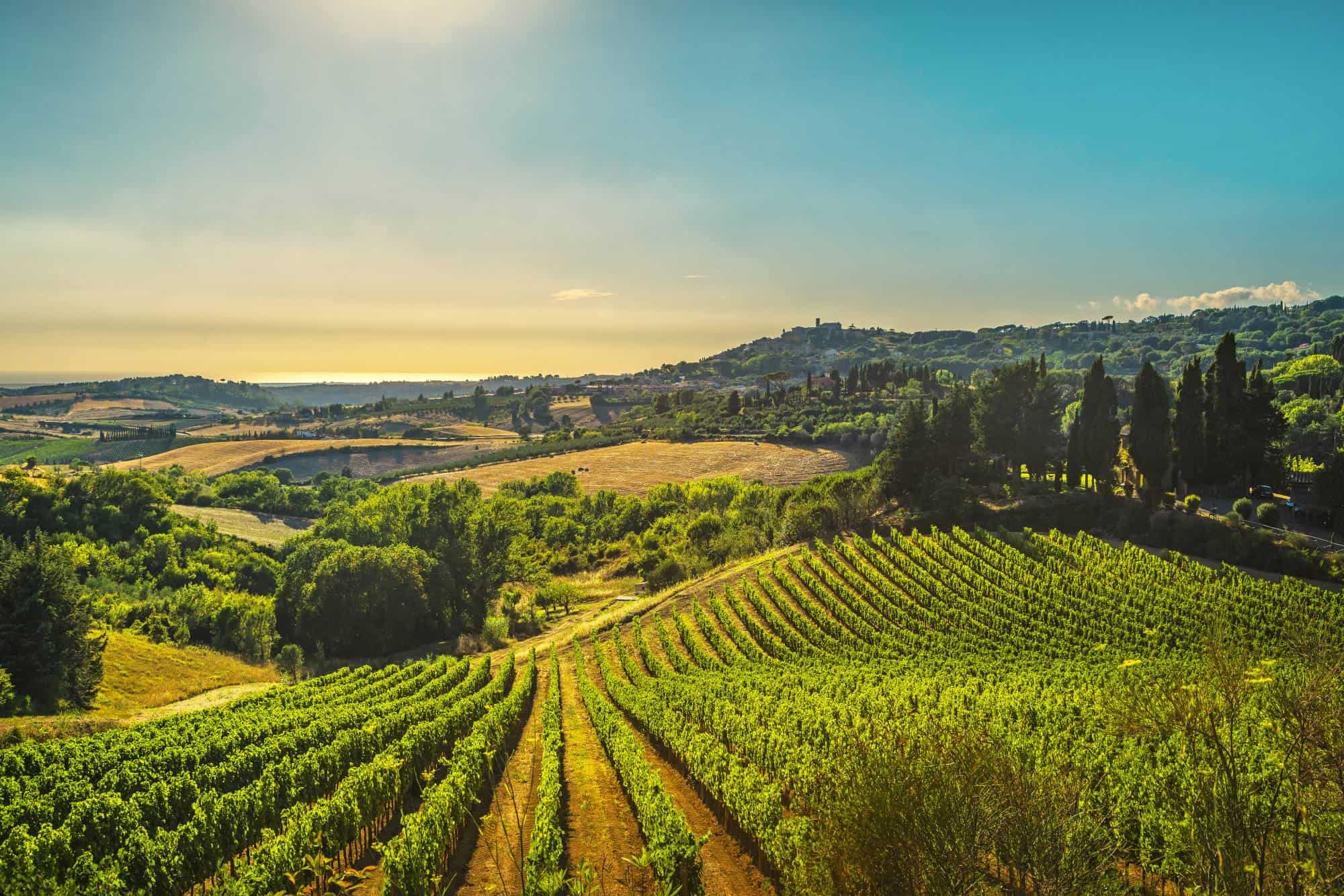
Tuscany is also home to much of Italy’s truffle industry, which should give you some idea about the level of gastronomy in the area.
Finally, there are Tuscany’s cultural offerings.
The region’s capital is Florence, which is known as the Cradle of the Renaissance. Here, you’ll find amazing art and architecture and some important history in its museums and galleries.
Tuscany also includes other tourist hotspots such as Pisa and Siena. Even after you become a permanent resident in the region, there will be plenty to draw you back to these cities time and time again.
In short, Tuscany has so much to offer expats. You can choose between quaint seaside villages or bustling cultural cities. Either way, Tuscany is certainly a region of Italy that won’t disappoint.
Moving to Tuscany as a non-EU citizen
Moving to Tuscany from non-EU countries such as the UK or the USA is quite possible.
You’ll need to apply for an elective residency visa, as non-EU citizens do. However, you can still apply for permanent residency after living in Italy for five years. You can find more details about an elective residency visa in our Living In Italy guide in the Residency in Italy for non-EU citizens section.
You don’t need to be an Italian resident to purchase property in the country. This means deciding on a property before making the move is easy.
There are numerous relocation services available for expats, which help guide you through the buying and moving process. As they handle all the paperwork for you (which can be a lot in Italy), it’s worth the expense.
Retiring to Tuscany
Retiring to Tuscany is a good idea if you enjoy the Italian way of life. The region’s central area has the highest property prices, particularly in larger cities. For those wishing for a less expensive retirement, coastal towns or rural hill towns are always good choices for a low cost of living.
The absolute lowest prices are in the region’s corners, in areas such as Lunigiana and Lazio. If you’ve got a bit of money saved up, areas in the Golden Triangle (Florence, Volterra, and Siena) can easily run into millions of euros. Some exclusive coastal towns, such as Viareggio, can match these prices too.
Of course, it all depends on what you want from retiring to Tuscany. If an outdoor, active lifestyle is your thing, you’ll be spoilt for choice. You could settle down pretty much anywhere and still have access to both the mountains and the coast. This is, after all, the joy of Tuscany.
Tuscany has plenty to offer those seeking different kinds of retirement. There are plenty of cultural activities, great outdoor spaces, golf, and great food and wine. Considering the high quality of life in the region, it’s easy to see why Tuscany has one of the highest life expectancies in Italy.
Lifestyle in Tuscany
Tuscany offers expats plenty in the way of activities and culture. You have options for an active lifestyle or the opportunity to relax in comfort. Whether you choose to live in the hills or by the sea, living in Tuscany is great.
Coastal areas are favorite tourist destinations, and as a result, watersports are quite popular. There are opportunities for sailing and water skiing but also business opportunities if that’s what you want from your new life abroad.
The region’s major hotspots are very popular with tourists in the summer. In fact, Tuscany is the second most popular region in Italy for tourists. As you’d expect, this means some places get quite busy in the peak season.
This may affect your quality of life to an extent, but this depends on what you want from your new life abroad. If you think tourism would be a con, consider moving to a less visited area. Tuscany covers about 23,000 square km of space, so you’re not short of options!
As with anywhere else in Italy, the pace of life is more relaxed than in places like the UK or the USA; most shops close over the lunch period, and quieter areas have something of a “we’ll open when we feel like it” policy. But, once you adjust to this way of life, you won’t look back.
So, what’s it like to live in Tuscany? Well, take everything good about living in Italy, dial it up a few notches, and compress it all into a single region. And that’s your answer.
The cost of living
As a region, Tuscany is one of the more expensive places to live in Italy. This is because of its association with tourism. However, the cost of living in Tuscany is still fairly low, and house prices are attractive. As this will likely be one of your main expenses, everything else will be tolerable.
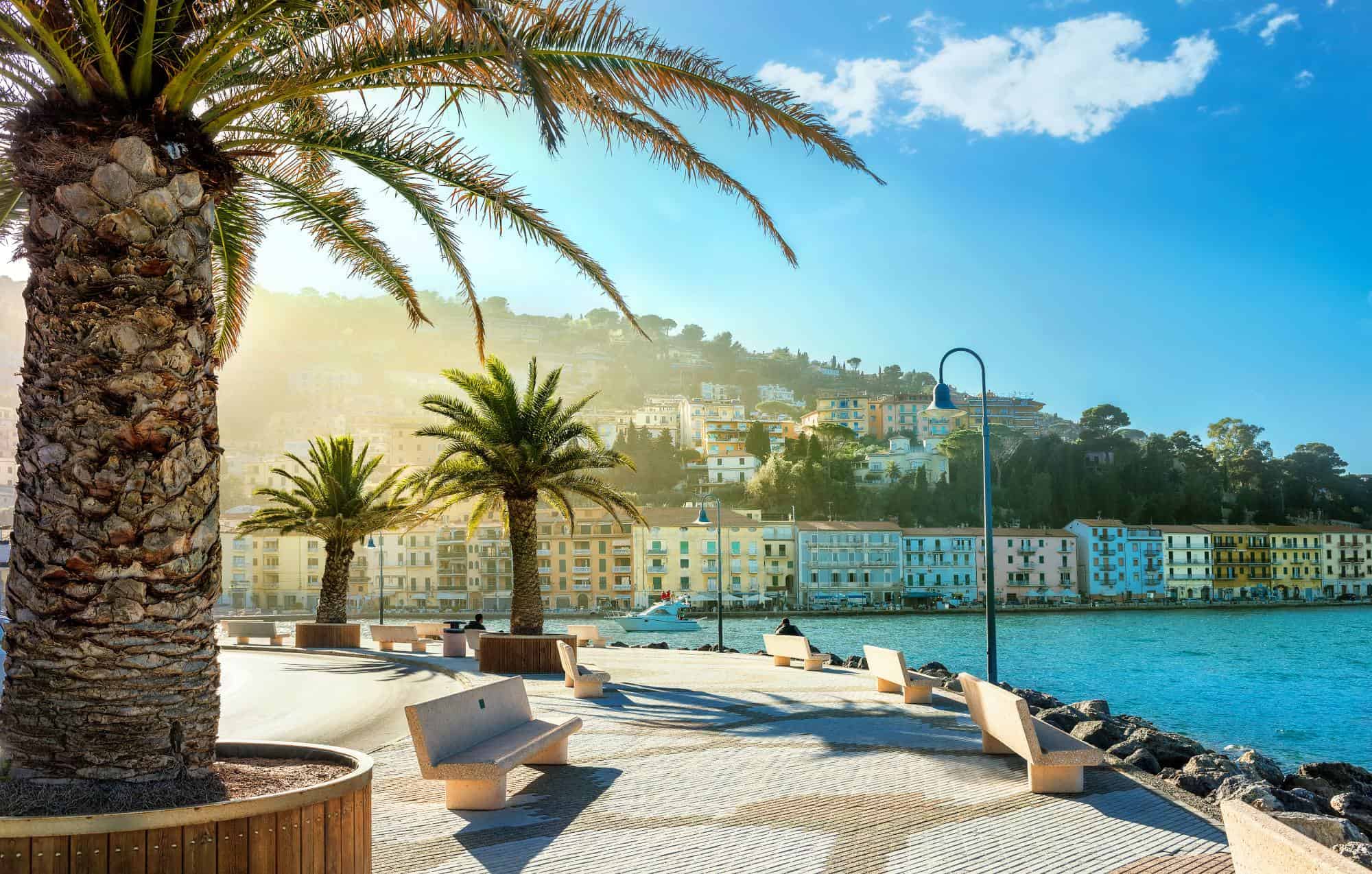
Florence, the region’s capital, is the most expensive place to live in Tuscany. But, even here, costs are nearly 14% lower than if you live in London and 23% lower than if you are in New York. Groceries are more expensive, but you can get around this by shopping at farmer’s markets and buying local produce.
If you choose to rent a property, you could pay as much as £900 (€1,040) a month for a central apartment. Of course, more rural areas will be considerably cheaper.
Also, property prices vary depending on where you look. Properties in central Florence can cost roughly £4,100 (€4,760) per square meter. But, on the other side, you can find rural properties needing renovation for as little as £15,000 (€17,500/ $21,200).
If you’re willing to spend a bit of time searching, property auctions are a great idea because their starting price drops by 20% every time the property fails to sell. So, with a bit of keen searching and patience, you could land a bargain in a perfect area.
Find out more about buying a property in Italy, the rules, due diligence, and how it works in our Buying A Property In Italy guide.
In terms of a monthly budget, two people could happily live on £2,000 (€2,300/ $2,830) a month in Tuscany. Even in urban areas like Florence, this amount would get you a comfortable life. In rural areas, however, you could live very comfortably on this much money.
Safety
Tuscany is a safe place to live, as, even in cities, crime rates are fairly low. Tourist-heavy areas will always have higher crime rates, but in rural villages, crime isn’t thought about. Italy is well known for its family- and community-centered culture, which helps keep crime rates quite low.

Even in Florence, crime rates are low to moderate and much lower than in most British cities. And, remember, this is the region’s capital and a tourist-heavy area, so other towns are much safer.
The main concern with crime in Florence is theft, both from homes and vehicles. This is understandable and is often the case in cities anyway, particularly in places favored by tourists. But in small towns and villages, many residents leave their doors unlocked, which should tell you something about their perception of crime in the area.
In short, you shouldn’t be concerned about safety in Florence if you don’t have concerns about your current home. Crime rates in Florence are likely lower, and once you integrate into the local community, you’ll have plenty of people watching out for your safety.
Learning Italian
English is widely spoken in Tuscany due to the tourism industry. This is particularly true in places like Florence and Pisa and coastal towns, as these are where many tourists visit.
You will find that in small towns and villages, finding somebody who speaks good English might be more difficult. Learning a bit of Italian before moving will make life a lot easier, even if you just pick up a few simple phrases to start with.
Luckily, there are plenty of Italian language schools in Tuscany, many of which are geared toward expats. And, if attending a formal school doesn’t appeal to you, you’ll likely find a group of local expats and Italians who you can gather into a language exchange group.
The pros and cons of living in Tuscany
There’s very little about living in Tuscany that could be considered a negative. But it’s worth considering these minor points before settling on this as your new place to live.
Here’s a list of the main pros and cons of living in Tuscany.
The pros of living in Tuscany
1. Great sense of community
Italy is famous for its family-centered community. Luckily, this sentiment extends to expats, too, meaning you should find it easy to integrate into local groups if you choose.
Of course, this is far more applicable to smaller towns, but even in cities, it won’t take you long to become friendly with your local shop owners.
2. Some of the best food and drink in the world
Italy’s food is some of the best in the world, and Tuscany’s is some of the best in Italy.
Local produce is inexpensive and of great quality (just be prepared to eat seasonally), and, unsurprisingly, Tuscans save much of the best wine for themselves. Eating out is inexpensive, and there are some amazing regional dishes to sample.
3. Incredible scenery
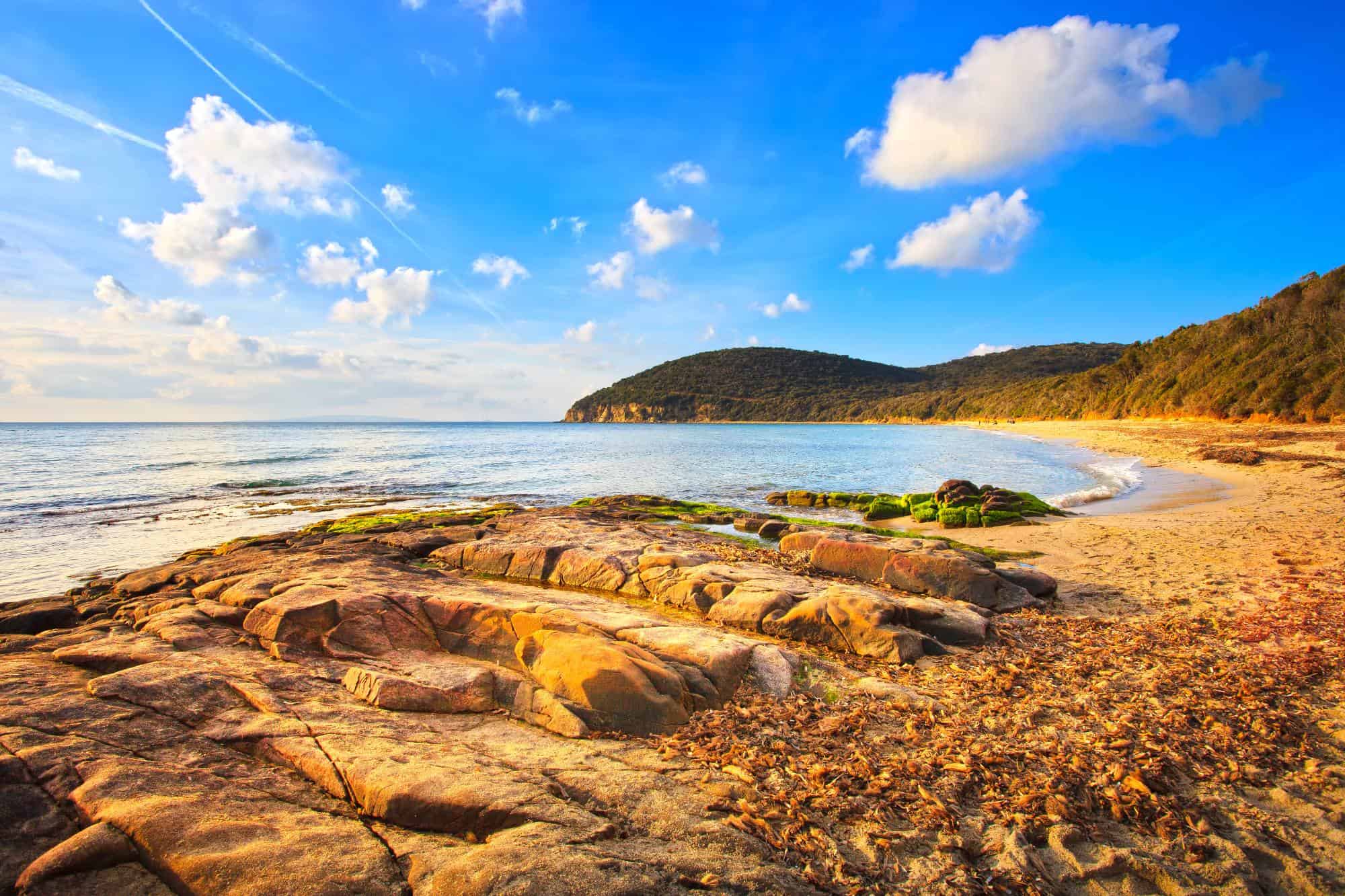
Tuscany ranges from mountains to the sea in a relatively small area. You could easily spend one day hiking in the Apennines and the next relaxing by the Mediterranean in Castiglione. The region also has 120 protected nature reserves, rolling hills of grapevines, and so much more for you to enjoy.
4. Amazing architecture and culture
Whether you’re a history buff or not, Tuscany’s association with Renaissance art is one of its main draws. The region is home to 7 UNESCO World Heritage Sites related to the Renaissance period.
Add to this the hundreds of museums and galleries and a great selection of opera houses and theatres, and you won’t be short of things to do.
5. High quality of life
Tuscany has one of the best qualities of life in Europe, and it’s easy to see why.
Local food is healthy, the climate is favorable, and there are plenty of opportunities for outdoor activities. Its quality of life also extends to things like good public transport and international connections and its low cost of living. In short, there’s plenty to appreciate here.
The cons of living in Tuscany
1. Tourism
Granted, this isn’t a deal-breaker, but it belongs on a list of potential downsides to living in Tuscany. You’ll know when it reaches peak tourist season.
The easiest way to avoid the worst of this is to steer clear of popular areas, such as Pisa and Florence. Luckily, there are numerous small villages and towns where tourists don’t step foot.
2. Possibly dry social life
This is more of a subjective one, as it depends on what you want from your social life. Local bars are the main meeting spots in rural towns, which can be a downside if you’re not a big drinker. The easiest way to overcome this is to live in a city or ensure you choose an area with a larger expat community.
3. A car is a must
Again, this isn’t really a negative specific to living in Tuscany. If you decide on a rural town, don’t expect there to be decent public transport connections. A daily bus is about the most you can expect. So, if you plan on doing anything, you’ll need a car.
4. No flat-rate tax for expat retirees
Unfortunately, Tuscany is not on the list of the regions where Italy offers a 7% flat tax incentive for retirees, so you can't benefit from a 9-year-long tax discount on your retirement income.
The best places to live in Tuscany
As you can imagine, Tuscany has plenty of great places to settle down. Here are some of the best places to live in Tuscany that aren’t the usual suspects.
1. Lucca
Lucca is west of Florence but still contains plenty of historic landmarks and traditional Tuscan charm.
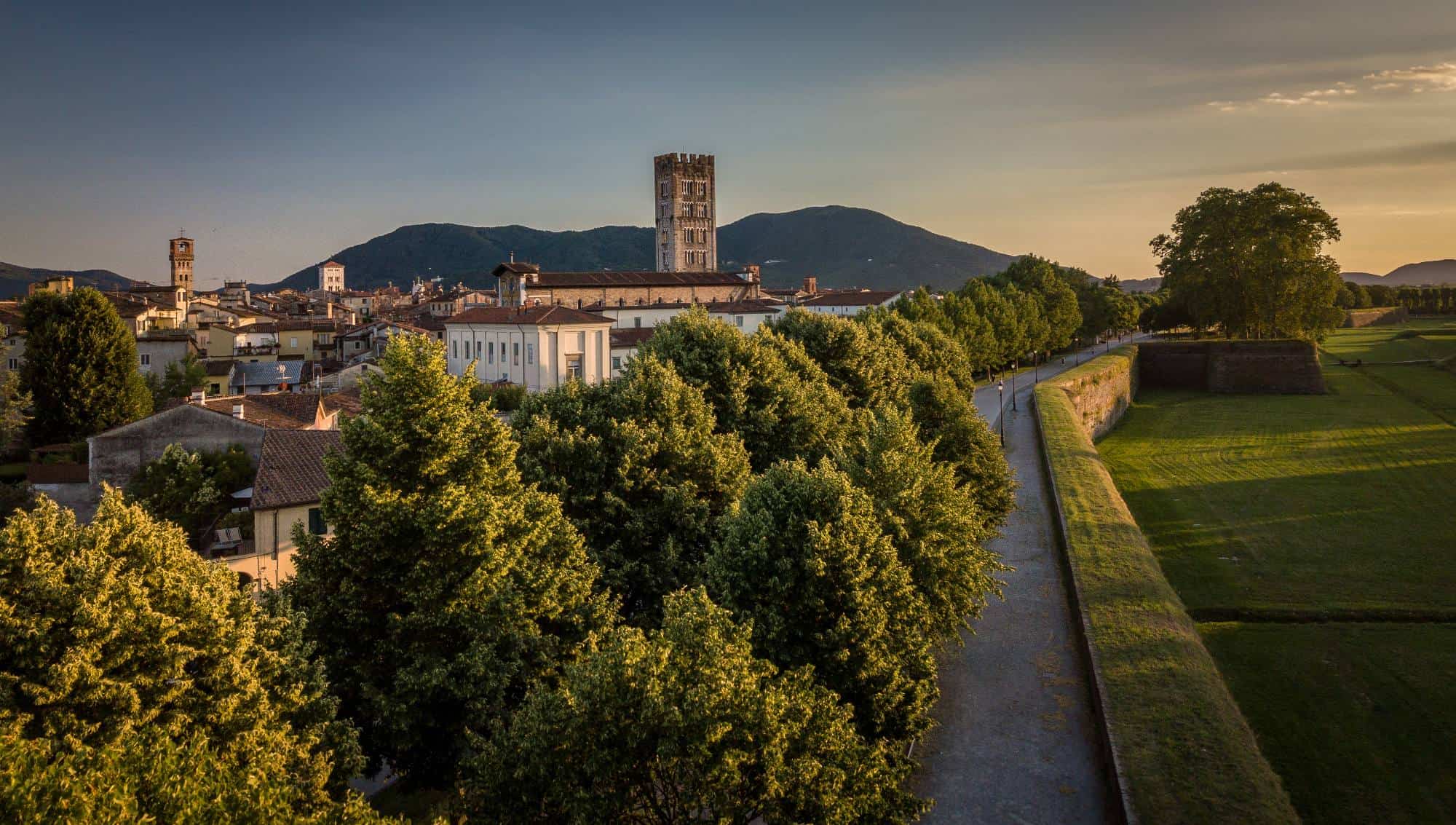
Tourism is an important industry for the city, but nowhere near the same level as places like Pisa or Florence. Importantly, this means there are plenty of employment opportunities if you need them but that you don’t have to deal with insane amounts of tourists in the peak season.
2. Volterra
Volterra arguably captures everything about Tuscan living. It’s a medieval town built on a hill and contains numerous museums and galleries, and a big castle.
The local countryside is home to vineyards and olive groves, and the local restaurants reflect this in their food. It’s not as popular with tourists, and this helps to keep the cost of living much lower.
3. Portoferraio
Although technically in Tuscany, Portoferraio is located on the island of Elba, which is off the Tuscan coast. You can reach the mainland by ferry, but the island has everything you need anyway. The town is lovely with narrow cobbled streets and rich medieval heritage and has plenty of great restaurants.
4. Castagneto Carducci
Named after the Italian poet Giosue Carducci, this small town is located in the hills about 10km from the coast. Its location is very Tuscan and gives you opportunities to enjoy every positive aspect of the region’s geography.
The town is known for its wine and good, making it a good place to live if you enjoy your cuisine.
The cheapest places to live in Tuscany
Although Tuscany is by no means an expensive place to live, some towns stand out as being incredibly cheap. Whether it’s property prices or the cost of living, here are some of the cheapest places to live in Tuscany.
1. Monteriggioni
Monteriggioni is another medieval walled town located in the province of Siena. It’s central in Tuscany, meaning it’s easy to visit larger towns and cities. Although it does draw tourists due to its wine production and historic buildings, property prices are very low.
2. Tavarnelle Val di Pesa
Tavarnelle Val di Pesa is a small village roughly 37km south of Florence. This gives you a much quieter way of life but easy access to the region’s capital.
The cost of living is low, as are property prices. You can find renovation properties on the outskirts of the village for next to nothing.
3. Pistoia
Pistoia is a surprisingly hidden city in Tuscany, about 30km northwest of Florence. It has a booming flower trade, which is a sight to behold in the spring. It’s also home to an annual music festival, which has hosted artists such as David Bowie and Bob Dylan in the past.
4. Borgo San Lorenzo
Borgo San Lorenzo is near the foothills of the Apennines, so it would be a good choice if you’re interested in hiking and outdoor activities. It’s associated with the Medici family, and so has lots of interesting history to explore. It's a more rural area; you’ll have an easy time finding cheap properties on the outskirts.
5. Pienza
Pienza is another hidden gem in Tuscany. It’s a small town in the Siena province and is home to pecorino cheese, which is made from sheep bred in the area.
In 1996, the whole town became a UNESCO World Heritage Site, which should give you some indication of its beauty. Even so, property prices and the cost of living are fairly low, although it’s a popular area with food tourists.
Where do expats live in Tuscany?
Tuscany is moderately popular with expats, less so than some southern regions of Italy. Many expats gather around the main cities, so there are numerous foreign communities living in Florence and Pisa and in towns close to airports.
Other popular expat destinations include Lucca, Chianti, and San Gimignano. You can also expect to find larger concentrations of expats in some satellite towns around larger cities, such as Tavarnelle Val di Pesa mentioned above.
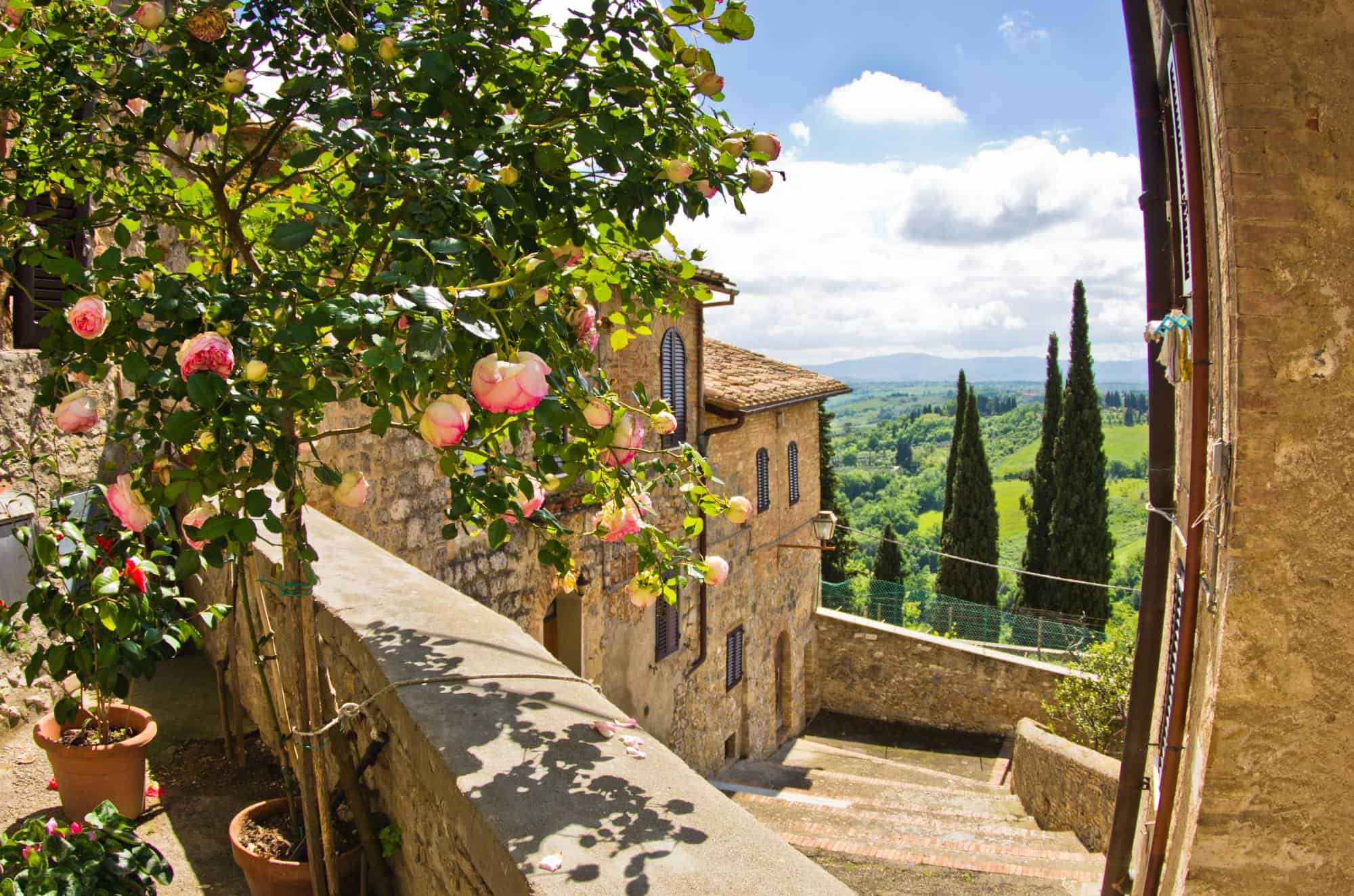
If you’re keen to mix with expat groups in Tuscany, there are plenty of ways to connect. Facebook, of course, is a good starting point, as you’ll find plenty of dedicated groups and communities.
Also, visiting Italian language schools in the region will be a good way to meet local expats in similar situations. Of course, if you’re not as interested in mixing with expats in your new Tuscan home, there are plenty of places to live off the beaten expat track.
Final thoughts on living in Tuscany
Overall, living in Tuscany has numerous benefits regardless of your reason for moving there. Whether you’re seeking employment or relocating in retirement, you could do a lot worse than Tuscany.
The region encapsulates everything positive about Italian culture – from its food and wine to its beautiful architecture and sense of community. Providing you’re willing to commit, moving to Tuscany could be the best thing you ever do.
You might find useful:
- Living In Italy – The Expats’ Essential Guide
- The Best Places To Live In Italy For Expats
- Didn’t find what you were looking for or need further advice? Comment with your question below, and we will do our best to help.
Secure Peace of Mind with Best-Value International Health Coverage
International Citizens Insurance provide free, no-obligation quotes from the leading international health insurance providers with plans tailored to meet your needs. Trusted by thousands of expats worldwide.




